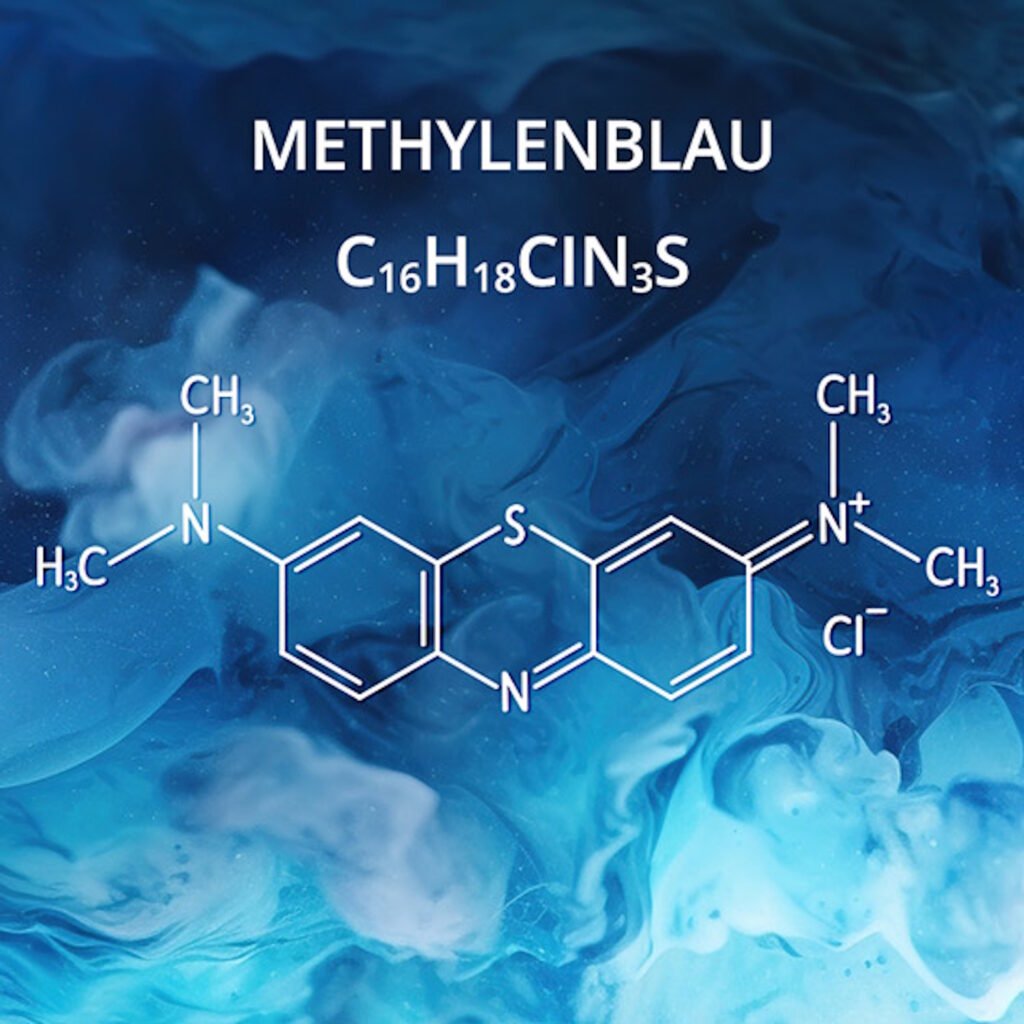
Transitioning from Antidepressants to Methylene Blue: A Gentle Shift
1. Why this transition?
Methylene blue acts as an antidepressant—but differently. It targets neuroinflammation, restores cellular respiration, and supports the nervous system. It doesn’t replace a chemical with another, but introduces a regenerative signal to the body.
This makes it possible to gradually move away from conventional treatment—while respecting the individual rhythm and sensitivity of the patient.
2. Misunderstood risks: clarifying serotonin syndrome
The rare alarming reports about methylene blue all concern intravenous high-dose use in hospital settings. The oral microdoses used in this context (< 0.4 mg/kg) do not lead to high plasma peaks and show no such side effects.
Below a certain threshold, methylene blue does not inhibit MAO-A and does not cause serotonin syndrome.
⚠️ This transition should never be attempted alone – it requires medical guidance and personalized support.
3. The three therapeutic phases
🔹 Phase 1: Stabilize
- Continue current antidepressant treatment
- Introduce methylene blue at a low oral dose (maximum 10-20 mg/day)
- Monitor sleep, anxiety, energy levels
🔹 Phase 2: Dynamize
- Gradually shift to dynamized microdoses (0.2 mg → 0.002 mg → 0.00002 mg)
- Prepared by succussion following the Hahnemannian method
- Fewer side effects, improved vitality
🔹 Phase 3: Support the withdrawal
- Very gradual reduction of the antidepressant—only if emotional stability is reached
- Ongoing support through the dynamized blue
- Deepening the therapeutic journey: body awareness, autonomy, new alignment
4. A word of encouragement
This transition is a real opportunity. It opens a new relationship with yourself, your health, and your inner balance.
You’re not just switching substances—you’re changing paradigms.
👉 Voir comment se fait la transition vers le bleu de méthylène chez les patients sous antidépresseur
👉 Wie der Übergang von Antidepressiva zu Methylenblau konkret begleitet werden kann
👉 See how the transition from antidepressants to methylene blue can be supported in practice